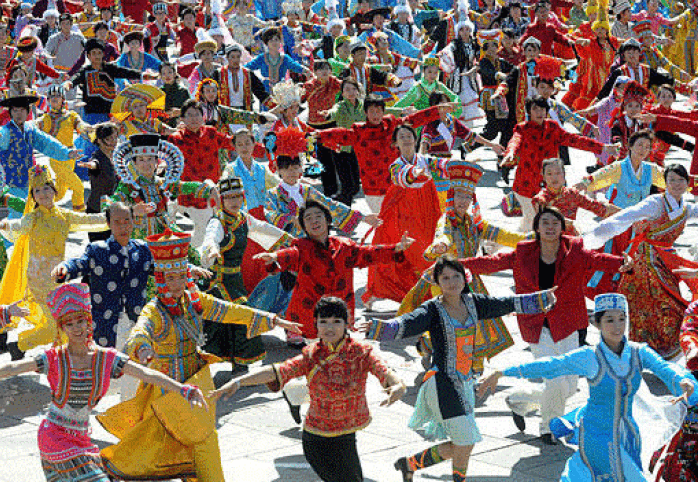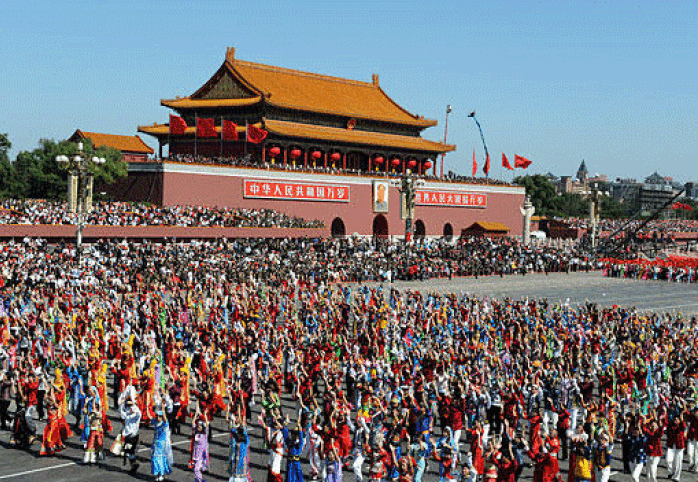While this year is Communist China’s 60th anniversary since its founding, it is also the 30th anniversary since China’s economic reform, so all of the world’s attention is focused on China. A massive and festive celebration was held at Tiananmen Square in Beijing on Oct. 1, which showed off the country’s prosperity and the people’s strength and also expressed their joyful hope for a bright future.
No doubt that since the economic reform, China has made significant progress in the fields of economics, society, citizen’s lives, environmental protection, and various others, and its influence reaches to all nations. Yet, how should a Christian view the last 30 years since the reform? To answer this question, China Ministries International and Vancouver Short-Term Mission Center co-hosted a seminar and Chinese Christians from various fields were invited to give their analysis and opinions.
Dr Victor Yang: Reviewing Economic Reform 30 Years
Truth-Monthly Canada West Chief- Editor Dr. Victor Yang brought up and reflected with the audiences the major events that took place in the last three decades since the reform, which include breaking the “da-guo-fan” or indiscriminate egalitarianism, establishing the responsibility system, a policy that allowed individuals to keep whatever profits they earned from work, designating areas as “experimentation zones”, establishing system of market economy, and the founding of modern corporate policies, and etc.
While looking at actual figures, Yang said that according to the social-economic development reports released by the National Bureau of Statistics of China (NBS) China’s annual Gross Domestic Product (GNP) is increasing at an average of 8.1%, the total economic output has increased by 77 places, which is currently ranked as third in the world.
If looking only at the Gross National Product (GDP), then China has really “Surpassed the English, and Kicked out the Americans”, he said, and is now looking from the third place at the second place, which is Japan, so catching up to America seems entirely expected.
This is something that is very exciting for all of the Chinese around the world; however, everyone knows that China’s population exceeds United States by four times, exceeds Japan by ten or more times, so we can only see the true difference by calculating according to the Gross National Product (GDP) at purchasing power parity per capita.
Yang pointed out that some reports revealed that 0.04% of China’s population possess 70% of the society’s wealth, and among these “who became wealthier first” the majority of them are relatives of high communist officials. He believes that China in essence has completely returned to the “old social-order” – private good, capitalism, wicked officialdom culture, official corruptions, wealth disparity, and etc have all reappeared.
He explained that when the communists initiated the Marxist revolution it began from the motto of “da-tu-hao, fen-tu-di”, meaning expropriation of local tyrants and splitting the land, which aimed at confiscating the wealth of “xian-fu-chi-lai-de-ren” or those who prosper first; at the same time the communists arrested the political corruptions, prevalence of corruption, wealth disparity, depressed people’s livelihood, and other social ills, so that was the reason why a powerful revolutionary army kicked out the nationalists; however, the China today after 60 years has returned to the state that was before the revolution, therefore, he urged the Chinese to deeply reflect the actual state of China’s society before rejoicing and shouting out for the new China.
Escape from History’s Bad Circle by Learning Lessons from History
Throughout the past millenniums, China’s history has been filled with changes of dynasties, rise and fall, and every time a new dynasty is established everyone hoped to enter 10 thousand years of prosperity. Yet, the new dynasty always become entrap in this historical “guai-chuan” or bad circle, repeating the mistakes of the past and going around in circles at one place. Now, it seems that China has entered a relatively stable and prosperous society, situation in a so-called “shen-shi” or prosperous era, but Yang believes that if the people, especially those in authority, cannot learn the historical lessons, then regrettably history will unavoidably enter this bad circle.
In conclusion, he said that mankind’s history is marked by violence and more than often no justice can be spoken of. The revolution that took place 60 years ago destroyed a generation of “those who prospered first”, but 30 years after the economic reform another generation of “those who prospered first” has been formed.
Christians often said that they hope for the eternal kingdom, said Yang, and this world is not my home; however, we still desire God’s will to be done on earth as it is in heaven. He hopes that from today on China will not only make progress in the fields of economics, technology, culture, and etc., but also make measurable progress in social-justice and social-equality just as how it states in Isaiah 56:1, “Maintain justice and do what is right, for my salvation is close at hand and my righteousness will soon by revealed.”









